News
CIPHER News

Join us December 4, 2025 for a One health Seminar with Dr. Antonio Humberto Hamad Minervino – Epidemiology of pathogens, ticks and tick-borne diseases, pathogen discovery, One Health, and Amazonian natural products – Federal University of Western Pará – UFOPA, Brazil. Antonio Humberto Hamad Minervino is an Associate Professor at the Federal University of Western […]

ON YOUR SIDE TONIGHT: Jamie Boll and WBTV recently visited UNC Charlotte’s CIPHER Center to explore how bird flu is evolving. Jamie sat down with Dr. Daniel Janies to discuss his cutting-edge research and the technology advances made since the COVID-19 pandemic. Their conversation highlighted the role of artificial intelligence in current studies and examined […]
AbstractPrimary production and microbial carbon cycling controls biogeochemical cycles that influencethe habitability of our planet. Within microbial communities, abundant viruses infect cells andrelease organic carbon from primary producers into dissolved and particulate carbon pools in theocean and fuel the microbial loop. Despite the key role of viruses in microbial carbon cycling,linking novel viral diversity to […]

UNC Charlotte Distinguished Professor and Director of CIPHER, Dan Janies was recently featured The Charlotte Optimist. The article titled The UNC Charlotte scientist who’s trying to outpace the next pandemic, highlights the research of Dr. Dan Janies, UNC Charlotte’s leading Bioinformatics and Genomics department, and the work being done at the CIPHER center to predict […]
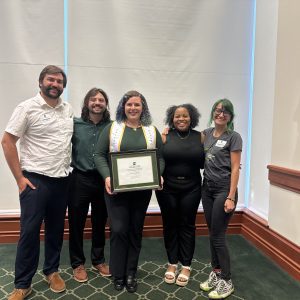
Caitlin BrabbleRose, Ph.D. Candidate in the Reitzel Lab was awarded the University Commendation for Leadership & Service. Caitlin is a Doctoral Writing Fellow and supports The Graduate and Postdoctoral Writing Center at The University of North Carolina at Charlotte. We are very proud and applaud your accomplishments.
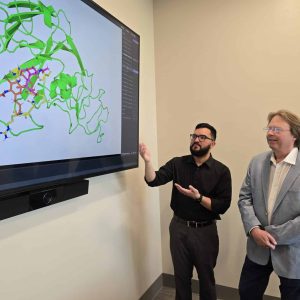
In a paper published last month, Janies, a distinguished professor of bioinformatics and genomics at the University of North Carolina at Charlotte, found that current avian flu strains are evolving to escape mammalian immune responses. “These results indicate that the virus has potential to move from epidemic to pandemic status,” the researchers said. Antibodies, which […]
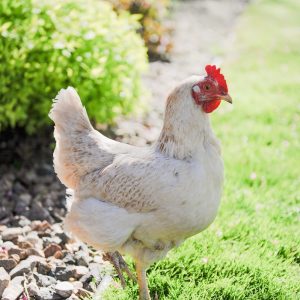
Recent research from the University of North Carolina at Charlotte reveals that the H5N1 virus, commonly known as bird flu, is evolving quickly and becoming more adept at infecting mammals, including cows and humans. Lead author Colby Ford highlights that vaccines developed for earlier strains of H5N1 may be less effective against these newer variants. […]

The Klein College of Science’s Truman Lab has been awarded a new R01 grant from the National Institute of General Medical Sciences (NIGMS), part of the National Institutes of Health (NIH). From 2024 to 2028, the new grant will provide $1,278,920 for the project “Understanding the role of Hsp70 chaperone code in proteostasis,” adding to […]

Avian influenza, or bird flu, is a virus that is on the mind of many in the United States and globally. The disease, which historically is transmitted by wild and farm birds, recently has jumped to other farm animals and humans. The mass infections of chickens has forced farmers to reduce their flocks resulting in […]
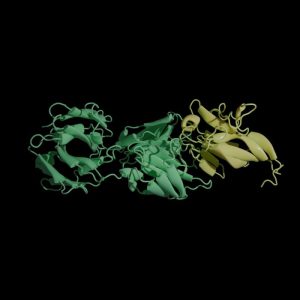
From egg prices to pet food recalls – and now, confirmation that another strain of bird flu has infected a large commercial flock of broiler chickens on a Mississippi farm – headlines are capturing escalating concern over H5N1’s spread. According to recent findings by a team of bioinformatics and genomics experts at the University of North Carolina at Charlotte, […]

New computational modeling of avian influenza variants’ immunoprotein interactions – developed by a research team at the University of North Carolina at Charlotte – reveals the H5N1 influenza virus is evolving to escape immunological defenses raised by previous infection or vaccination in mammals. Published on March 17 in eBioMedicine, part of The Lancet, the team’s new […]
UNC Charlotte is leading in defining the future of artificial intelligence. As the Charlotte region’s educational AI leader, the University is advancing AI research, education and ethical implementation to drive innovation with real-world impact. The launch of the Charlotte AI Institute (CLT AI Institute) formalizes UNC Charlotte’s position as a hub for cutting-edge discovery, interdisciplinary collaboration and […]
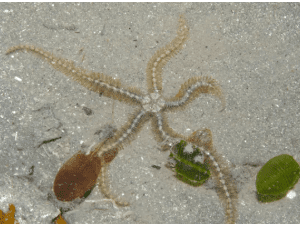
How sea creature superpowers are inspiring smart biomaterials for human health. Major findings on the inner workings of a brittle star’s ability to reversibly control the pliability of its tissues will help researchers solve the puzzle of mutable collagenous tissue (MCT) and potentially inspire new “smart” biomaterials for human health applications. The work is directed […]

Timing COVID-19 booster shots correctly could greatly enhance their effectiveness, according to a new study conducted by researchers from the University of North Carolina at Charlotte and the Yale School of Public Health. Their results show that the optimal schedule for administration of a COVID-19 booster vary significantly depending on one’s geographic location and past […]
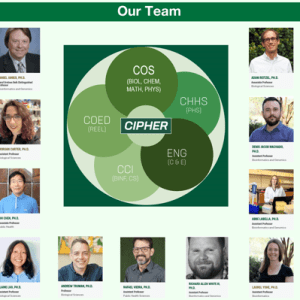
CIPHER has a podcast! “de-CIPHERing Infectious Disease” explores the cutting-edge interdisciplinary research happening at UNC Charlotte’s CIPHER Research Center. Each episode features an in-depth interview with one of CIPHER’s researchers, allowing them to discuss their background, current projects, and the exciting team science approach they take to tackle complex issues at the intersection of health, […]

The International Society for Microbial Ecology (ISME) meeting was held for the first time – since the conception of the meeting four decades ago – in Cape Town, South Africa, an inaugural place given its significance to microbial ecology and diversity of life on earth. Cape Town lies near the southernmost point of South Africa, […]
